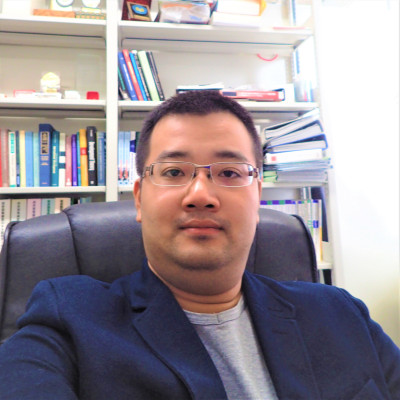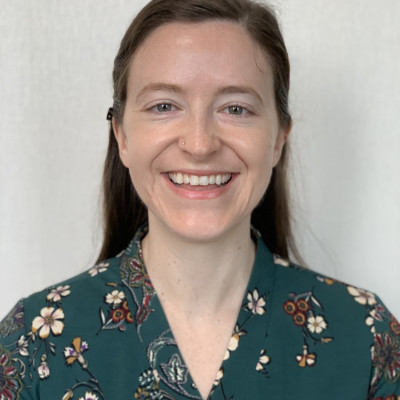Sessions / Location Name: P103
Physical Location
Location: P103
Building: Prime < Sookmyung Women's University, Seoul
Busan Chapter Lunch #3852
Busan Chapter
If you're a Busan-Gyeongnam chapter member going to the conference, Saturday's lunch on April 29th is on us. Socialize! Make friends! Rub elbows! Network! Sit in the corner and quietly chill with your free meal! Let us know if you're going to join us on Saturday via email (BGKOTESOL@gmail.com) or join our Kakao Open Chat so we can save you a seat and save you a plate.
Vietnamese Students’ Perception of PechaKucha in English Public Speaking Classes #3576
A PechaKucha is a presentation format of 20 slides of images with little text, each of which advances automatically after 20 seconds. Despite being quite popular globally in the last two decades, in Vietnam, PechaKucha is a relatively new concept, as most English Public Speaking classes still employ the traditional slides. This includes the researchers’ organization, International University, HCMC Vietnam National University. With the aim of offering students and their audience a new choice of presentation style, and investigating Vietnamese students’ perception of this style, PechaKucha was introduced to 10 English public speaking classes. A questionnaire was then administered to students who used PechaKucha for their assignments. Fifty responses were collected for data analysis. The results show positive feedback in general, but there are some concerns about the time constraints and the extra amount of work. Implications of the results can assist changes in the syllabus of the subject.
Reading Anxiety and Reading Performance Among Vietnamese English-Major Students #3484
Reading seems to be an easy process which does not cause language learners as much tension as other productive skills. However, similar to other skills, an experience of anxiety may cause poor performance and reading receives no exception. The current study investigated 71 English-major students who studied the English Linguistics Program at International University,VNU-HCMC, Vietnam. The students took part in the survey to measure their reading anxiety, using the English Foreign Language Reading Anxiety Inventory (EFLRAI) (Zoghi & Alivandivafa, 2014). They were later assigned one Certificate in Advanced English (CAE) reading test to measure their reading performance. The results found out that students experience low to moderate levels of reading anxiety. Additionally, the Pearson correlation test showed a significant moderate negative relationship between reading anxiety and reading performance (r=-.362). The findings indicate that the anxious feelings can be considered as a barrier to students achieving good reading performance.
Reassessing Classroom Observation for University Teachers #3587
Classroom observation is one of the most common ways to reflect and improve teaching practice. However, the researchers recognized, through conversations with colleagues and friends, an apparent lack of classroom observations among university teachers in Japan and decided to investigate this issue further. This study investigates the experiences and beliefs of university teachers working in Japan related to classroom observations. An online questionnaire was distributed and the results were a combination of quantitative and qualitative data. Follow-up interviews were conducted with volunteer teachers to discuss their experiences of classroom observations in more depth. The results highlight the scarcity and negative connotations of classroom observations, as well as offering practical ideas for how to re-evaluate and consider the benefits of peer-to-peer classroom observations at the university level in Japan. The researchers will then introduce their plans to develop this research in the future.
COIL: Replacement or Preparation for Actual Study Abroad? #3469
During the Coronavirus pandemic, collaborative online international learning (COIL) emerged as a substitute for study abroad. However, there is now an opportunity to re-purpose COIL to better prepare prospective sojourners. This presentation will report on the experiences and government-funded research of the presenter, who coordinated two cross-cultural COIL courses between students at a university in Japan and those studying in North America. In this presentation, the speaker will first introduce the COIL courses by comparing two different online platforms that were used: Padlet and Flip. Next, based on qualitative data received from 31 students and employing a phenomenological research design, the presenter will discuss the effectiveness of using COIL as preparation, as opposed to a replacement, for overseas experiences. Both educators and administrators who attend this session will be exposed to ideas for setting up COIL and integrating it into L2 and cross-cultural curricula.
Starting Moodle LMS for your Classroom #3664
Partner Session (JALT)
A learning management system (LMS) supports learning activities such as discussions, quizzes, and interactive elements and has become essential for classrooms. A well-organized LMS requires good planning and execution to thoroughly distribute learning objectives and resources. The shift to online learning has necessitated the digitization of the classroom environment to aid instruction and support for teachers. Moodle is an academic LMS software that has helped support the presenter's classroom. This presentation will focus on its standard features, advantages, and improvements over other systems and the challenges it presents. The future of Moodle and e-Learning systems beyond COVID-19 will also be discussed. The presenter hopes that participants will find LMS software valuable as a long-term augmentation to their classrooms, whether in-person or online.
A Report on the Impact of Emergency Remote Teaching on EFL Instruction in South Korea #3623
This paper documents the transition from Emergency Remote Teaching (ERT) to post-ERT English as a Foreign Language (EFL) teaching practice by investigating the experiences of EFL university instructors in South Korea. Using a mixed methodology, the researchers found quantitative evidence to possibly formulate a standardized ERT practice in the field of EFL. The multiple regression tests found that teachers identified managing grades and student messaging as benefits of remote teaching; the same tests also showed self-regulation, collecting assignments, and creating English content as ERT challenges. These are the specified areas that teachers have reported as the benefits and challenges of ERT practice. A key finding of this paper revealed a salient example of ERT’s lasting impact. Some of the teachers in this study had two groups of students: online and in-person. Along with documenting this hybrid of in-person and remote teaching, this study provided a platform for teachers to voice their experiences and concerns about this transitory period. This study also found evidence that incorporating an online component into traditional classrooms appears inevitable; the issues inherent in language instruction are now inseparable from the challenge of engaging students accustomed to remote learning.
Chinese English teachers’ perceptions of native-speakerism and signals of change #3853
Since its introduction, studies about native-speakerism have focused mostly on students’ perceptions of their native/non-native English teachers. The current study aims to explore Chinese English teachers’ perceptions of native-speakerism by asking two questions. First, what constitutes native-ness, especially in non-English-speaking countries. By what factors do Chinese English teachers tell native English teachers from non-native ones? Second, from the perceptions of Chinese English teachers in the first question, what pedagogical implications can we draw? The participants are six Chinese English teachers in a private junior high school in Jiangsu, China. Qualitative data was collected through questionnaires and follow-up interviews. The findings show that Chinese English teachers believe speaking ability is most important to determine an English teacher’s native-ness. With this speaking ability, fluency and certain accents are the key factors. The results will cast a hint of emerging changes in the perceptions of native-speakerism and pedagogical implications in non-English speaking countries.
Across Three Languages: The Translingual Practices of Trilingual Basic Writers #3667
We report findings from the analysis of essays written by 113 first-year university students that have implications for teaching beginning L2 writing in Korean contexts. The essays were written in three languages: Standard Arabic, French, and English at two major public universities. Three equivalent prompts in each language were developed in which students were asked to make and defend a choice between two alternatives, one per essay. The essays were scored by teachers literate in all three languages and each essay was coded by two graduate students for evidence of translingual practices across the three essays. Five categories of translingual practices were identified, serving different communicative and rhetorical purposes. A significant positive correlation was also found between the amount of translingual practice identified in the writers’ essays and their holistic scores, sentence complexity measured by t-units, and word count. After presenting our findings, we hope to extend our discussion to translingualism in Korea and invite discussion from the audience.
Conversation Based Learning: Use Partners, not Grammar #3470
Stop the insanity. Grammar-based English is failing another generation of students. With videos and ten years of data, this presentation details Conversation-Based Learning from first-day placement test to last-day improvement data. The method is Writing for Speaking. Writing before speaking improves accuracy, speaking to many partners improves fluency. Students sit in pairs and have speed dating conversations. They get a new topic every week and a new partner every seven minutes. Everybody speaks half the time, and half the time their partner is a better speaker. The self-transcribed conversation test completes the system. Students get extensive personal feedback, and teachers get accurate grading and improvement data. In short: students write what they say, talk about what they wrote, transcribe what they said, and correct their own mistakes. Students do all the work. Good. An education is preparation for life and life is not a grammar test.
Sharing Your Strengths: Make and Deliver a Conference Presentation #3451
One of the most effective techniques to develop strength and confidence in teaching is produce a conference presentation for a wider audience. It connects the speaker to other professionals, allowing oneself to grow professionally. However, many teachers are intimidated by preparing and delivering a conference proposal. This presentation draws from the presenter’s own extensive experience in different types of conferences over at least a decade. The presentation shows how to write an effective abstract, integrate the intended material for presentation, pace and organize the presentation within the set time, respect the audience’s context, and manage other considerations for a successful conference presentation. Expect to interact with others on these topics and to learn helpful tips and techniques for any presenter. Regardless of your experience as a presenter yourself, you will find this presentation enlightening.
A Pronunciation Toolkit for English Instructors #3530
Comprehensible pronunciation is an essential part of our students’ successful communication. However, it can be difficult for teachers to know what to focus on when our learners have so many challenges. As well, integrating clear and helpful instruction, along with opportunities for practice, can be a struggle in an already jam-packed curriculum. In this workshop, participants will explore the core features of pronunciation that have the most significant impact on our students’ intelligibility. The speaker will demonstrate techniques for addressing these elements of speech using everyday items that teachers can carry in their pronunciation “tool kits” to help students master core pronunciation features in a practical, fun way. In addition, the speaker will demonstrate how this practice can be seamlessly incorporated into existing lessons. Session participants will leave with "toolkits" of their own, as well as engaging ideas they can put into practice in their own classrooms immediately.
Fun and Games for Bottom-up Listening #3529
Researchers of second language listening contend that the use of bottom-up strategies benefits both proficient and less-skilled L2 listeners (Field, 2008 and Reed & Jones, 2022). The good news is bottom up processing practice in ESL classes can make a big difference in students’ overall listening comprehension (Siegel & Siegel, 2015). In this workshop, the speaker will demonstrate 10 interactive, engaging activities that teachers can easily incorporate into their classes with existing listening texts at every level. Session attendees will leave with practical ideas they can put into practice on Monday!
Field, J. (2008). Listening in the language classroom. Cambridge University Press. Reed, M. & Jones, T. (2022). Listening in the classroom: Teaching students how to listen. TESOL Press. Siegel, J. & Siegel, A. (2015). Getting to the bottom of L2 listening instruction: Making a case for bottom-up activities. Studies in Second Language Learning and Teaching, 5(4), 637–662.
Exchanging Experiences to Build Understanding: Dialogue Journal Use In Service Learning #3397
Jacoby (1996) defines service learning as “a form of experiential education in which students engage in activities that address human and community needs, together with structured opportunities for reflection designed to achieve desired learning outcomes.” Pedagogically, students’ ability to negotiate their understanding of and relationship with learning outcomes and connected social issues expand as they engage in structured reflective practice. This workshop presents the theoretical background of service learning in the context of language instruction before narrowing the focus to the design and implementation of dialogue journals: shared, student-led logs offering collaborators space to describe, probe, and interrogate their cumulative experiences. Attendees of this workshop will be led in a series of joint tasks analyzing and critiquing the tool, sharing teaching contexts, and exploring ways to incorporate similar frameworks in their classrooms - calling special attention to instructor interaction and customizing feedback.
A comparative study on English curriculum implemented in Mongolia and South Korea #3740
Partner Session (Mongolia TESOL/ELTAM)
The present study aims to investigate and compare the English curriculum being implemented in secondary schools in Mongolia and South Korea. Comparisons are made in terms of characteristics, achievement standards, organizations, and contents of the curriculum. Analysis found that there are several differences in some points such as the starting period of teaching English and some points in the main objectives. The aim of the English curriculum of Korea presents that English is a tool for introducing Korean culture, while the curriculum of Mongolia aims that the cultural awareness of other nations enhances learners’ desire to learn a foreign language. Thus, it is found that the achievement standards in both curriculums focus on specific skills and their integration, and those specified standards are the basis for the evaluation. The main scope of the content in both curriculums is based on language function skills and organized from simple to complex and easy to difficult.
















